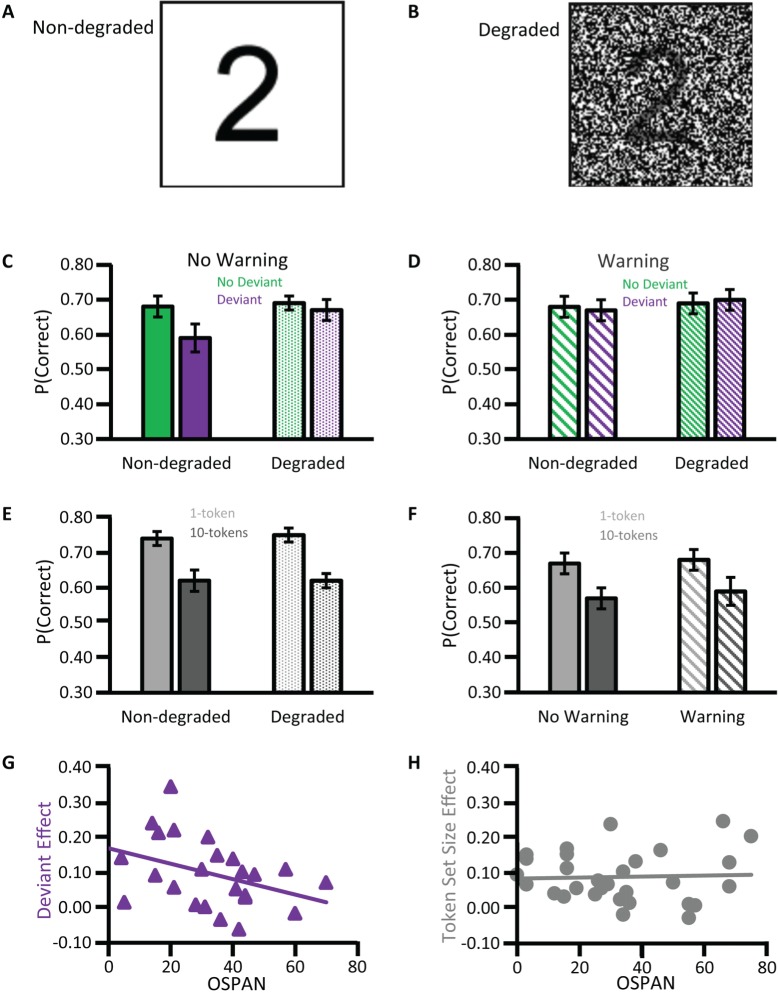Figure 13.
Sensory load, foreknowledge, and working memory capacity affect the deviant effect, not the token set size effect. Increasing sensory load by degrading to-be-remembered serial recall visual digit items (A) with Gaussian noise (B) reduces the deviant effect (C), whereby an occasional change-in-voice of to-be-ignored speech disrupts serial recall performance. Foreknowledge of an imminent deviant eliminates this influence of sensory load and the deviant effect (D); n = 24. A comparable influence of sensory load on the token set size effect or “changing-state effect” was not apparent (E); n = 45, nor was there any modulation by foreknowledge of changing-state multi-token stimulation that was consistently more disruptive than a repeated speech token (F); n = 31. Indeed, WMC as indexed by OSPAN correlated negatively with the deviant effect (G); n = 24, yet not the token set size effect (H); n = 31. Credit: Copyright © 2013 by the American Psychological Association. Adapted with permission from Hughes et al. (2013). The use of APA information does not imply endorsement by APA.

